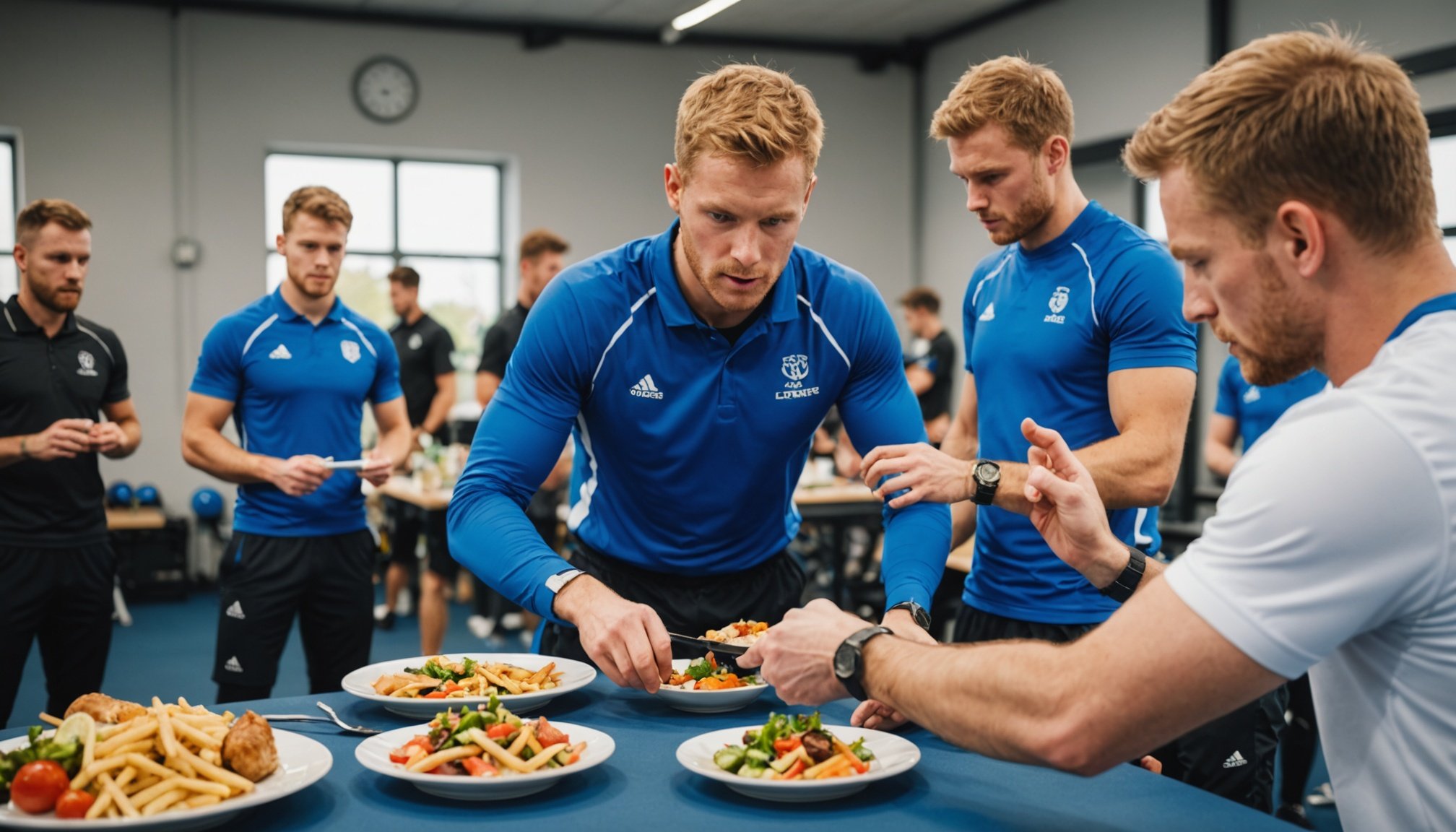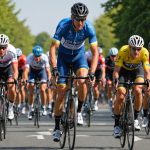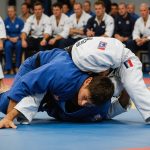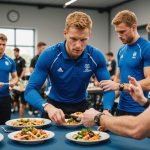Understanding the Importance of Nutrition in Sports
Proper athlete nutrition plays a pivotal role in enhancing sports performance and promoting swift recovery. Athletes require specific nutritional strategies to maintain optimal energy levels and support the rigorous demands of their training routines. Consuming a balanced diet rich in carbohydrates, proteins, and fats is crucial for fuelling workouts and aiding muscle repair.
Macronutrients and Their Role
- Carbohydrates: Serve as the primary energy source during high-intensity and endurance activities. They replenish glycogen stores, facilitating sustained athletic performance.
- Proteins: Essential for muscle growth and repair. They aid in recovery by rebuilding muscle tissue that breaks down during intense exercise.
- Fats: Act as a secondary energy source and support prolonged activities. They are crucial for long-lasting endurance and maintaining body functions.
Micronutrients and Athlete Health
Vitamins and minerals, though required in smaller amounts, are vital for metabolic processes. For example, calcium and vitamin D are key for bone health, essential for preventing injuries.
Also to read : Enhancing player resilience: proven techniques for uk cricket coaches to help athletes thrive under pressure in key matches
Athlete nutrition is not only about enhancing performance but also plays a significant role in injury prevention. A well-rounded diet influences muscle strength, flexibility, and resilience, reducing the risk of strains and stress injuries. By understanding nutritional importance, athletes can tailor their diets for maximum effectiveness.
Key Nutritional Strategies for Athlete Development
Understanding the significance of individualized meal plans is crucial for athletes aiming to excel in their respective sports. Each sport has unique demands, making tailored nutrition strategies essential. For example, endurance athletes require a higher carbohydrate intake compared to sports that focus on strength, which need more protein.
This might interest you : Essential post-ride recovery tips for uk cyclists: proven strategies for long-distance performance
Nutrient timing plays a pivotal role in enhancing athletic performance. Consuming the right nutrients at strategic times can improve energy levels and recovery. For instance, consuming carbohydrates and protein within 30 minutes after training can help replenish glycogen stores and repair muscle tissues efficiently.
Hydration is another critical element that can significantly affect an athlete’s performance. Adequate water intake supports endurance and reduces the risk of injuries. It’s recommended for athletes to drink at least half a litre of water every hour during prolonged exercises to maintain optimal hydration levels.
A comprehensive sports diet should incorporate these strategies to support the athlete’s overall development. By focusing on meal planning, understanding hydration effects, and leveraging nutrient timing, athletes can optimise their performance levels while minimising fatigue and recovery time. Such adjustments can lead to improved outcomes during competitions and training sessions, enhancing long-term athletic development.
Collaborative Approaches with Nutrition Experts
Incorporating the expertise of nutritionists and dietitians can significantly enhance an athlete’s performance. The benefits of collaborating with these professionals extend from individualised meal plans to optimising energy levels for both training and recovery. By adopting a tailored, science-based approach, athletes can maintain peak performance and endurance throughout their sessions.
Implementing a nutrition team within a sports club requires a strategic approach. First, it’s crucial to establish roles and responsibilities, ensuring each team member understands their specific contributions. Effective integration involves regular coaching collaboration to align nutritional protocols with training schedules. This ensures athletes receive consistent messages and support from the entire coaching staff.
Communication strategies between coaches and nutritionists are essential in maintaining a cohesive collaboration. Frequent meetings can help reinforce shared objectives and address any dietary adjustments promptly. Utilising a digital platform can facilitate direct and efficient information sharing, ensuring both immediate and long-term goals are met.
By fostering open dialogues and mutual respect, coaches and nutritionists can create a dynamic partnership that benefits athletes. This teamwork encourages adherence to meal plans and facilitates immediate implementation of feedback, ultimately leading to improved athletic outcomes.
Practical Techniques for Implementing Nutrition Programs
Implementing effective nutrition programs in athletic environments requires strategic planning and a focus on tailored education. Begin by integrating nutrition education into the regular training routines. This can involve collaboration with nutritionists to create educational content that addresses the specific needs of athletes, such as meal planning and nutrient timing.
To enhance these efforts, organising interactive athlete workshops and seminars can be particularly effective. These sessions should focus on practical applications like cooking classes, label-reading exercises, and discussion forums that encourage athletes to ask questions and share experiences. Inviting experienced speakers to these events can provide valuable insights and motivate athletes and staff alike.
Real-world examples often illustrate the success of well-executed nutrition programs. For instance, a collegiate team implementing a thorough nutrition plan saw measurable benefits in performance and recovery times, confirming the program’s effectiveness. By sharing these case studies, other athletic groups can draw inspiration and learn best practices for their programs.
Empowering athletes with knowledge and resources cultivates a proactive attitude towards nutrition, supporting their overall performance and well-being. This strategic, hands-on approach ensures that nutritional education is embedded within the team culture, leading to sustained results.
Monitoring and Adapting Nutrition Plans
Effective nutrition monitoring is essential for athletes committed to reaching their peak performance. By employing a variety of tools and methods, athletes can track their nutritional intake and assess progress. Adaptive planning is crucial, as it allows flexibility in dietary approaches, ensuring the nutritional needs evolve alongside training demands.
Gathering athlete feedback is a cornerstone of this adaptive process. Athletes should regularly communicate with nutritionists or coaches about their responses to current plans. This feedback loop helps identify any adjustments required to meet energy needs or address recovery issues.
Several technologies can aid in monitoring, such as smartphone apps that log daily nutrient consumption, or wearable devices tracking biometrics. These tools provide a comprehensive overview of dietary adherence and physical responses, empowering data-driven decisions.
In practice, numerous athletes have found success through adaptive nutrition strategies. For instance, an endurance runner might notice improved stamina following a shift towards higher carbohydrate intake based on feedback and performance metrics. Another example is a weightlifter adjusting protein sources to optimize muscle growth and recovery.
Continuously evaluating and modifying nutrition plans ensures athletes fuel their bodies effectively, adapting to ever-changing training conditions and goals.
Resources and Tools for Enhanced Nutrition Success
Enhancing your nutrition game involves tapping into the right nutrition resources and athlete tools. This is not only about following dietary guidelines but doing so effectively. To start, explore the world of apps designed for seamless meal planning and nutrition tracking. Applications like MyFitnessPal and Cronometer offer user-friendly interfaces that track your calorie intake and nutrient balance with precision.
For those wanting to dive deeper into sports nutrition, certain literature comes highly recommended. Books like “Nutrition for Athletes” by the International Olympic Committee provide thorough insights into dietary guidelines tailored specifically for sportspeople. These texts are invaluable in understanding the intricate relationship between nutrition and athletic performance.
Furthermore, creating a resource library within sports clubs can be a game-changer for athletes and coaches alike. A well-curated collection of guides, educational videos, and workshops can drive home the importance of balanced diets and strategic eating practices. It fosters an environment where optimal nutrition becomes second nature, ultimately enhancing both individual and team performance. With the right tools and resources, achieving nutrition success is within reach for every athlete.











